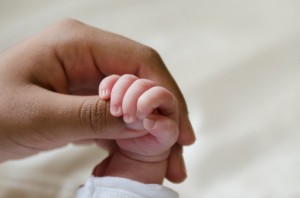Highest State Court Upholds Jury Award in Birth Injury Lawsuit
 The highest court in Maryland rejected a final appeal by MedStar Harbor Hospital, allowing the plaintiffs to receive a $20.6 million jury award to care for their severely disabled child. The original verdict in this birth injury lawsuit was handed down in 2012 by a panel that found a sequence of events during the child’s delivery led to the oxygen deprivation that resulted in his disabilities.
The highest court in Maryland rejected a final appeal by MedStar Harbor Hospital, allowing the plaintiffs to receive a $20.6 million jury award to care for their severely disabled child. The original verdict in this birth injury lawsuit was handed down in 2012 by a panel that found a sequence of events during the child’s delivery led to the oxygen deprivation that resulted in his disabilities.
Now, the Court of Special Appeals in Maryland has rejected the defendant’s final appeal, closing the door on what has become one of the highest profile cases involving birth injury in the country.
Early labor prompted by complications
According to this complaint, the plaintiff mother was admitted to MedStar Harbor Hospital on September 26, 2002, when she was 32 weeks into her pregnancy. Due to high blood pressure readings on both the mother and fetus, hospital staff decided to induce labor to prevent risks associated with hypertension during pregnancy. During the labor induction, doctors noted a drop in the baby’s oxygen levels, but failed to perform an emergency C-section. Instead, the physician overseeing the labor and delivery allowed labor to continue for another three hours.
When the baby was born, the plaintiffs claim the umbilical cord was wrapped around his neck and he had been deprived of oxygen during the birth process. The child was later diagnosed with spastic diplegic cerebral palsy, which affects physical as well as mental development. Most individuals with this type of cerebral palsy experience stiffness in the hips and legs and may have significant difficulty walking.
Cerebral palsy – an incurable neurological disorder
Cerebral palsy is actually a cluster of neurological disorders that are typically diagnosed in early childhood. The permanent disorder affects muscle coordination and movement and may also impact intellectual development, vision, hearing and speech. There is no cure for cerebral palsy; many of those diagnosed will likely require ongoing medical care and assistance performing daily tasks throughout their lives.
According to the plaintiffs in this cerebral palsy lawsuit, although the child is now in school, he faces many difficulties due to the limited function of his limbs. The child has undergone multiple surgeries and will require a wheelchair for the rest of his life. In addition, the parents have had significant challenges in both financially supporting their son and ensuring one of them was at home to care for him at all times. The family was seeking damages from the hospital to compensate them for medical treatment and ongoing care their child requires.
File for judgment denied twice
Prior to the first jury verdict in 2012, defendants filed for judgment, saying post-natal records showed he could not have suffered oxygen deprivation during labor and delivery. The judgment was rejects and the jury found in favor of the plaintiffs in this lawsuit, with an original award of $21 million. That amount was reduced to $20.6 million due to a statutory cap by the state on non-economic damages.
The defendants immediately filed for judgment notwithstanding the verdict. However, the appeals court upheld the jury’s original ruling and rejected a final appeal from the defendants, finding no issues with the original proceedings.
- Baltimore Sun, State’s Highest Court Rejects Hospital’s Final Appeal in Birth Injury Case, http://www.baltimoresun.com/health/blog/bs-hs-birth-injury-decision-20150319-story.html
- The Daily Record, CSA Affirms $20.6 Million Award in Birth Injury Case, http://thedailyrecord.com/2014/09/26/csa-affirms-20m-award-in-birth-injury-case/
- National Institute of Neurological Disorders and Stroke, NINDS Cerebral Palsy Information Page, http://www.ninds.nih.gov/disorders/cerebral_palsy/cerebral_palsy.htm
- CerebralPalsy.org, Cause of Cerebral Palsy, http://cerebralpalsy.org/about-cerebral-palsy/cause/


 Resources
Resources
 Resources
Resources
